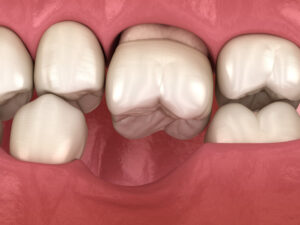What Happens When a Patient Reaches Terminal Dentition Stage?
Losing a single tooth can be a traumatic experience and many patients have a hard time coping with it. This hardly comes as a surprise. After all, losing even that one tooth can have a detrimental impact on the patient’s dental and overall health.
The impact can also be psychological. For instance, a patient missing a tooth, especially if it is the front tooth, or several can no longer smile naturally and confidently, and there is also the functionality aspect such as biting and chewing to worry about.
Last but not least, a single missing tooth can cause the remaining teeth to deteriorate. It is important that patients understand that this does not need to happen to them. All of it can be successfully alleviated and/or avoided altogether with professional assistance.
But it is when a patient is rapidly approaching a terminal dentition stage that they may feel that all hope is lost. What factors determine if a patient has no choice other than extraction? Is preservation of a patient’s teeth ever possible if they have already lost several of their natural teeth? Many patients contemplating dental implants in Murrieta consult a specialist to ask this very same questions.
What is terminal dentition?
Terminal dentition is a term clinicians use for patients who have lost all or most of their natural teeth, which means all the teeth in either upper or lower arch or both arches are failing. They are either at or rapidly nearing the end of their lifespan. It is noteworthy that the remaining teeth may pose a threat to the patient’s overall health.
Fortunately, these teeth can be replaced with dental implants, giving patients the chance to restore their comfort and enjoy fully functional teeth, natural-looking smiles and better overall quality of life. For patients who have reached the terminal dentition stage, the best and most cost-effective solution is the all-on-4 procedure. The all-on-4 procedure takes up to 4 hours when performed by an experienced oral surgeon.
Why am I losing all my teeth?
Losing one or more of teeth is not uncommon. Various factors could be at play: natural deterioration due to old age, decay due to poor care and maintenance, or complications caused by an infection. Tooth loss can get out of control, and it may not be possible to put a stop to it, especially if the patient has developed a systemic condition which causes tooth loss.
Be that as it may, it is what the patient decides to do next that matters.
Namely, some patients accept the fact that they are losing their teeth and choose not to do anything about it. Often, this is due to financial reasons. Some patients are skeptical about the interventions used for dental restoration or concerned about the potential complications.
But for patients who turn to dental and oral health professionals right away, there is a way to undo the damage to an extent and preserve the remaining teeth, as well as to find the right dental restoration solution.
Dental implants are a superior dental restoration option for single or multiple missing teeth, especially for patients who have reached a certain age, as it means they are getting a stable solution that can last for the rest of their lives.
What happens if I lose all my teeth?
Before this happens to you, it is best to do whatever is in your power to undo the damage as much as possible and turn the situation around. The best thing to do in case of tooth loss is to reach out to a dental and oral health professional for consultation and advice.
For patients who lose all their teeth, there are several dental restoration options to consider. All these vary in terms of cost, functionality and lifespan, as well in the visual aspect, measured by how natural-looking the replacement teeth feel. With a proper implant and overall dental and oral care routine, properly placed high-quality dental implants have the highest long-term success rate, in addition to like-natural aesthetics and functionality.
What happens if you have a tooth pulled and don’t replace it?
Sometimes, a patient needs to have their teeth removed. Serial extractions are inevitable and necessary for legitimate reasons which may include:
- Dental abscess
- Advanced gum disease and associated severe infections
- Tooth damage that cannot be undone
- Intense pain due to inadequate filling, crown, or root canal treatment
- Lack of space/crowding in the mouth
- Preparation for an orthodontic procedure
To compensate for the missing tooth, the surrounding teeth tend to shift, which can lead to complications and cause the patient’s dental and oral health to further deteriorate. These adjacent teeth are also much weaker now and more prone to damage due to the loss of structure and support. In other words, even if the patient’s teeth were removed deliberately, it is vital that they consider viable restoration options.
Dental implants in Murrieta: a specialist on your side
Proper dental care coupled with regular visits to the dentist as prevention is better than cure. But sometimes it is too late for prevention and we need to shift our focus on finding the cure or the next best thing. If you think your case is a lost cause, you are concerned that you are too late to do something about it, or that complications could arise later on even if you did, it is of paramount importance that you discuss your concerns at length with Dmitry Tsvetov, DDS, MD who has helped many patients in Murrieta, Temecula and nearby areas in a similar situation. Contact us to schedule an appointment today.
Comments are closed.




